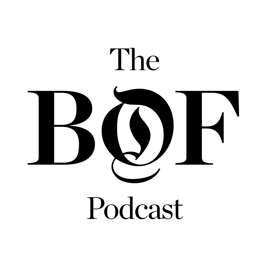
Advertise on podcast: The Business of Fashion Podcast
Rating
4.4 from
Country
This podcast has
432 episodes
Language
Publisher
Explicit
No
Date created
2017/04/10
Average duration
32 min.
Release period
7 days
Description
The Business of Fashion has gained a global following as an essential daily resource for fashion creatives, executives and entrepreneurs in over 200 countries. It is frequently described as “indispensable,” “required reading” and “an addiction.” Hosted on Acast. See acast.com/privacy for more information.
Social media
Check The Business of Fashion Podcast social media presence
Podcast episodes
Check latest episodes from The Business of Fashion Podcast podcast
Arizona Muse on Modelling and Fashion’s Dirty Roots
2024/02/23
In 2010, model Arizona Muse was catapulted into the fashion spotlight. After opening and closing Prada’s Spring/Summer 2011 show, she was signed as a face of the brand. But after years of the modelling, grind and some serious personal reflection, the British-American model has swapped the glamour of the runway for environmental activism.
“[Modelling] nearly destroyed me. You pretend you enjoy it because everyone wants you to enjoy it. But the truth is, you'd prefer to be doing something else.”
This week on The BoF Podcast, BoF founder and editor-in-chief Imran Amed sits down with Muse to discuss her journey to the fashion runway, her reflections on fashion’s contribution to the climate crisis and why she sees self-care as a form of environmental activism.
Key Insights:
While Muse is grateful for modelling career, she said it caused immense strain on her mental health. “It's been a blessing in so many ways, but it also nearly destroyed me. It really nearly destroyed my mental health,” she shares. “What's hard about modelling is people are judging you all the time on what you look like … They don't even judge you on what you wear. It's just purely what you look like.”
The model first tapped into her passion for environmental activism after being invited to a charity lunch where she learned that textile materials were grown in soil by farmers. “Working at the centre of this industry, working with all the most amazing fashion houses that we've all heard of, how is nobody talking about the farmers who grew our clothes for us?” she says.
She also sees her own self-care as part of her activism. “How can I take the best care of my being so that my being can be in the best shape that it can be, to be in service to the other beings around me who are human, to the other beings around me who are non-human, and to the biggest being of us all who is the earth?”
Muse recognises the need for governments to support organisations like DIRT, she also insists there is a level of personal responsibility for those privileged enough to make sustainable choices. “If you're like I am, and you're one of those lucky people who has money in your pocket right now, it is your responsibility to spend it with sustainable businesses who are making things in a more responsible way,” she says.
Why Big Brands Are Pushing Back Against Sustainability RegulationsThe Problem with Sustainability DataThe BoF Podcast | Ending Climate Colonialism in Fashion
Hosted on Acast. See acast.com/privacy for more information.
more
Kevin Macdonald Probes John Galliano’s Soul
2024/02/16
In the world of high fashion, few names have commanded as much attention — and controversy — as John Galliano.
Throughout the 1990s and 2000s, his sensual designs and runway theatrics earned him worldwide acclaim.But Galliano’s career imploded in 2011 when a video of him emerged using antisemitic slurs. In a new documentary, “High & Low: John Galliano,” BAFTA-winning director Kevin Macdonald examines Galliano's meteoric rise, scandalous downfall, and the role of forgiveness and redemption.
“If there's one thing that people could take away from the film, it is [that] things are never that simple. The grey predominates in life and in morality,” says Macdonald.
This week on The BoF Podcast, BoF editor-at-large Tim Blanks sits down with McDonald to discuss the phenomenon of cancellation and his own feelings about Galliano after completing the documentary.
Key Insights
Alongside archive footage and interviews with industry insiders, the film features extensive conversations with Galliano himself. Macdonald says Galliano seemed to forget the series of events and antisemitic remarks he said. “I think he genuinely blotted that out. I don't think he's pretending not to remember. I think that it's a sign of him creating a story for himself about things that have happened … to get by,” Macdonald says.
According to Macdonald, Galliano does not expect total forgiveness but hopes for understanding. “He knows some people will never forgive him for the antisemitic comments he made, but he wants people to understand who he is and where that came from and what part it had in the way it played in his life.”
Macdonald attributes the attention the film has received prior to its release to nostalgia for a bygone era. “I think there's a romance about this past where people were misbehaving and being creative geniuses and led to crash and burn and didn't have to answer to HR,” he says.
High & Low – John Galliano opens in cinemas on 8th March 2024.
Additional resources
John Galliano: ‘I Feel Much Freer’John Galliano: Fashion’s Greatest Showman Turns Ciné-AuteurA Penitent John Galliano Talks to Charlie Rose About Childhood, Addiction and McQueen's Suicide
Hosted on Acast. See acast.com/privacy for more information.
more
Pat Boguslawski Is the Secret Weapon Behind John Galliano’s Fashion Drama
2024/02/09
Pat Boguslawski is setting the fashion world in motion.
The Polish movement director at Maison Margiela is the creative mastermind behind some of fashion’s most memorable runway moments. From German model Leon Dame’s viral runway stomp in 2020 to the seductive strides of corseted characters in John Galliano’s triumphant 2024 Maison Margiela couture show, Boguslawski is redefining the role of the model and bringing back the spectacle of the show.
“I always tell the models that it's better to give more than to give less,” he told BoF editor-at-large Tim Blanks, on this week's podcast.
Key Insights
Growing up in Poland in the nineties, Boguslawski devoured fashion content on TV and in print. But as he watched everything turn into a product, he felt the storytelling essence of fashion diminish. “I started doing my job because I got bored. I just didn't like the direction we were going towards. … I promised myself that I'm gonna start bringing that energy back to fashion and create major runway moments.”
Boguslawski is a multi-faceted creative. He started training as a dancer at age 15, transitioned to modelling and also studied drama and acting for four years before shifting to movement direction. “I'm so grateful that I was so curious because now I kind of use everything that I did in the past at my job,” he says.
Directing the movement for the 2024 Maison Margiela couture show, Boguslawski encouraged the tightly-corseted models to channel their pain and discomfort into their characters. "I remember saying, 'Use that pain, use that suffering in your character. Just use whatever you're feeling right now. … Don't try to be perfect. Just let me see the suffering,'" he recalls.
For Boguslawski, a connection with the audience is a key part of the show. “I like when the audience feels intimidated. It's exciting and I love the adrenaline that comes with it.” He recalls the impact of his direction during a rehearsal before the show. “I remember we were watching the main rehearsal and they were wearing their own clothes and the corsets. The whole rehearsal got a standing ovation by everyone who was in the room.”
Additional resources
Different Takes on Future Perfect at Fendi and Maison MargielaA Dream of Defiance at Margiela
Hosted on Acast. See acast.com/privacy for more information.
more
Brandice Daniel on Making Room for Diversity in Fashion
2024/02/02
As founder of Harlem’s Fashion Row, Brandice Daniel is a change agent. For more than 15 years, she has been working to bridge the gap between the fashion industry and Black and Latinx designers who often don’t come from famous fashion schools like Parsons or FIT.
Following the surge in interest in diversity, equity and inclusion following the murder of George Floyd, there are growing headwinds which are stalling progress.
“We've regressed so far, so fast. It is really disappointing, especially in an industry that is supposed to be cutting edge … How can you be innovative without addressing DEI?” she says.
This week on The BoF Podcast, BoF founder and editor-in-chief Imran Amed sits down with Daniel to discuss how the industry can foster real change.
Key Insights:
Harlem’s Fashion Row was founded in 2007 — long before DEI became a corporate buzzword — after Daniel noticed how little diversity there was at US department stores. “[I] realised that less than 1 percent of the designers that were on those websites at the time were designers of colour, however … African-Americans were spending $22 billion a year on apparel. And that was when I really got my aha moment.”
2020 was a pivotal year for Harlem’s Fashion Row. After George Floyd’s murder sparked global conversations around racism and representation, more fashion and retail brands opened the door to diversity. “It was very easy to tell during those days who was wanting to do very performative work versus who actually was interested in doing the work,” Daniel explains. “The companies who were doing the work before 2020, they are still doing the work.”
Still, despite the momentum that 2020 brought, she’s been disappointed in the lack of long-term action. “We've regressed so far, so fast. It is really disappointing, especially in an industry that is supposed to be cutting edge … How can you be innovative without addressing DEI?” she says.
When it comes to finding your sense of purpose, Daniel believes in focusing on your goal, rather than the nitty-gritty of the process of achieving it. “Don't worry about the how. Just worry about the what and the why. If you focus on the what and the why and just allow the how to unfold as you just take one step forward, you will see that so many incredible things will happen.”
Additional Resources:
UK Fashion Industry Isn’t Making Progress on Leadership Diversity, Report FindsA New Lawsuit Puts Fashion’s Corporate Diversity Efforts in the Crosshairs Protecting Fashion’s DEI Efforts During Market Disruption
Hosted on Acast. See acast.com/privacy for more information.
more
Ending Climate Colonialism in Fashion
2024/01/26
The fashion industry is responsible for up to 8 percent of global greenhouse gas emissions. But the most profitable fashion companies are often headquartered in the countries that have historically generated more emissions, while the nations with a smaller carbon footprint often find themselves more severely impacted by extreme weather driven by the climate crisis.
“The industry is structured in a way that's very colonial … it's the rich countries that are reaping all the rewards and benefits, and it's the poor countries that have kept this industry profitable,” says Ayesha Barenblat, the founder and CEO of Remake, a non-profit that advocates for sustainable practices in the fashion industry.
This week on The BoF Podcast, BoF chief sustainability correspondent Sarah Kent sits down with Barenblat, sustainable fashion designer Sammy Oteng and Vidhura Ralapanawe, executive vice president at manufacturing company Epic Group at BoF VOICES 2023 to discuss how to end climate colonialism in the fashion industry.
Key Insights:
In fashion, the climate crisis appears in colonial structures that perpetuate unequal distributions of power and profit. According to Barenblat, companies act as “glorified marketeers, telling production nations how to deal with the climate crisis. They're setting science-based targets, but they're not paying for it … let's flip the script and actually have a conversation around the people who create value for this industry and how we centre them in the conversation.”
Countries in the global South have become dumping grounds for low-quality clothes from the global North. An estimated 40 percent of the textiles that arrive in Ghana are discarded as waste, however the true scale of excess garments is unknown. “We don't even know how much we are producing in terms of fashion. We say 100 billion to 150 billion [garments produced each year], that's a 50 billion gap,” explains Oteng. “Until we understand a problem that we have, we can't move on to having … that one solution.”
Alongside climate mitigation, it is important to also address climate adaptation. “Every brand and retailer wants to talk about mitigation because they want to make money off the climate crisis, but our communities need climate adaptation resources,” says Barenblat, adding that philanthropic contributions are not enough. “What we want are equitable ways to make these communities whole … we can't just sit around and have conversations anymore.”
The fashion industry needs to halve its emissions by 2030 to meet global climate goals, a timeline that is already unrealistic. As Ralapanawe says, “We haven't even started. There's no way that any brand or any manufacturer will hit their 2030 targets now.”
Additional Resources:
The Year Ahead: Why Fashion Can No Longer Ignore the Climate CrisisThe Multi-Billion-Dollar Question for Sustainable FashionSustainability Comes At a Cost. Fashion Isn’t Paying.
Hosted on Acast. See acast.com/privacy for more information.
more
Matthieu Blazy’s Creative Alchemy at Bottega Veneta
2024/01/19
Matthieu Blazy has been a quiet but powerful force in the fashion industry for years, having worked under powerhouse designers like Raf Simons and Phoebe Philo. But in 2021, he earned that status on his own when he was named the creative director of Bottega Veneta. Since then, he’s developed a reputation for pushing creative boundaries; BoF editors named his carnivalesque Autumn/Winter 2023 collection, which featured tank tops and jeans made of leather, as their favourite show of the season.
“I was very interested in this idea of boring clothes. How can we push it so it really becomes something precious and luxurious?” Blazy says.
This week on The BoF Podcast, Blazy sits down with BoF editor-at-large Tim Blanks at BoF VOICES 2023, where he opened up about his creative processes and work at Bottega Veneta.
Key insights:
For Blazy, collaboration and a close connection with his teams are paramount for creativity. Before taking the creative helm of Bottega Veneta, Blazy spent four years at Maison Martin Margiela. “The way I work with the team is quite emotional. … When I arrived at Margiela I took my office out of the studio and I put it inside the atelier. It was nice because it was not just me thinking on my own. We were actually making it together,” he shares.
Whilst Blazy recognises the power of technology in fashion, at Bottega Veneta, he still puts the emphasis on craftsmanship first. “When you make something by hand, it will always have a little mistake, which is not a mistake, which is part of the process. … so when you go to the store, you won't find twice the same product. You have the idea of a theory, of course, but it's never the same. One artisan cannot finish the work of another artisan.”
As a global brand, Blazy hopes customers around the world will be able to see themselves in Bottega Veneta under his creative direction. “Fundamentally I want [global customers] to also find something where they also recognize themselves in the story that is not just Italian.”
Additional resources:
Who Is Matthieu Blazy, Bottega Veneta’s New Creative Director?Bottega Veneta: Everything Old Is New AgainBottega Veneta’s Everything, Everywhere Essence Strikes Fashion Gold
Hosted on Acast. See acast.com/privacy for more information.
more
Dan Levy and Jonathan Anderson on Balancing Creativity and Commerce
2024/01/12
The delicate dance between artistic integrity and commercial viability is a challenge Dan Levy and Jonathan Anderson know well. Levy's Emmy Award-winning Netflix show Schitt's Creek harmonises creative brilliance with mainstream appeal, while at the luxury label Loewe, Anderson’s refreshingly original designs have earned him both critical acclaim and commercial success. What unites their work is a real commitment to personal vision.
“I can't think of something more heartbreaking than starting with an idea that I loved, allowing people to change it to the point where it loses its DNA, then it goes out into the world and either succeeds or fails, and I have to look at that and say, ‘Well, that's not me,’” says Levy. “You can never get that back. The fight to protect that [idea] is so important.”
This week on The BoF Podcast, Levy and Anderson speak with BoF editor-at-large Tim Blanks about how they balance creativity and commerce in a conversation from BoF VOICES 2023.
Key Insights:
"Schitt's Creek" began as a bare-bones-budget Canadian production and became a worldwide sensation during the pandemic. “We went and made something with absolutely no outside opinions, and because the stakes were so low, we were able to really kind of make the show for ourselves,” he says. “So what we made was quite pure.”
Through his work at Loewe and his namesake label, Anderson has realised that designers can’t be afraid of backlash. “Sometimes you have to make the decision that you may have to give the audience what they don't want to annoy them. Because there's nothing better when people are annoyed because then they think.”
For both creatives, the pandemic was a watershed moment. Anderson recalls, “it destroyed every formula that there ever was,” whilst Levy explained, “it also gave the consumer or the audience the freedom to find what they liked.”
To find creative success, Anderson puts it simply: “I think for something to be successful, you have to give everything you have.”
Additional resources:
At Loewe, Jonathan Anderson Thinks Outside the Box. Literally.How Loewe Became One of Fashion’s Hottest BrandsThe Jonathan Anderson Experiment
Hosted on Acast. See acast.com/privacy for more information.
more
Diane von Fürstenberg on the Power of a Little Dress
2024/01/05
Diane von Fürstenberg has been synonymous with women’s empowerment since she first unveiled her revolutionary wrap dress in 1974. But for her, the garment became much more than a symbol, it became the key to her own independence.
“I did not know what I wanted to do, but I knew the kind of woman I wanted to be,” von Fürstenberg told author and spiritual wellness advocate Deepak Chopra, her friend of three decades, on stage at BoF VOICES 2023. “I wanted to be in charge. I wanted to be free. I mean freedom. I wanted to be my own person. And I wanted to have a man's life in a woman's body. And the way I became that woman was a little dress.”
This week on The BoF Podcast, von Fürstenberg and Chopra look back on the designer’s journey from princess to fashion powerhouse, and share their collective wisdom on finding meaning in life.
Key Insights:
Born in Belgium, von Fürstenberg is the daughter of a Romanian father and Greek-born, Jewish mother who survived the Holocaust. “She taught me that fear was not an option,” von Fürstenberg says of her mother. “That no matter what, you could never be a victim.”
Despite her decades-long career in fashion, it wasn’t until von Fürstenberg received the Council of Fashion Designers of America’s lifetime achievement award in 2005 that she considered herself a designer. “Because I didn't go to fashion school, I thought I wasn't a designer,” she recalls. “But the one thing I know I am, I can design life … You're not in charge of your destiny, but you can navigate your destiny.”
Von Fürstenberg's work with various causes and non-profits is as close to her heart as her namesake business. “I never really loved the word philanthropy because it sounds like landscaping. You feel like you need an expert, but it is about being human. And it is about paying attention to others.”
Additional Resources:
Diane von Furstenberg Makes a (Profitable) ComebackDiane Von Furstenberg’s CEO on Building a Career in FashionDiane von Furstenberg Shutters Rental Service
Hosted on Acast. See acast.com/privacy for more information.
more
Brunello Cucinelli on Humanistic Capitalism in an Age of AI
2023/12/29
Since 1978, Brunello Cucinelli’s namesake brand has been a standard-bearer for both luxury clothing and a more responsible way of doing business. At a time of great change, Cucinelli believes that businesses must strike a balance between embracing technological innovation that could threaten livelihoods, like AI, to push creativity forward while also keeping humanity at the heart of business.
“I believe in a kind of contemporary way of capitalism. We are a listed company. We do want to make a profit, but a fair profit at that. There should be a balance between profit and giving back,” he explains.
This week on The BoF Podcast, Brunello Cucinelli speaks with BoF founder and editor-in-chief Imran Amed about ethical business building, artificial intelligence and his philosophy of “humanistic capitalism” during conversation at BoF VOICES 2023.
Key Insights:
Cucinelli’s approach to labour is guided by his working-class upbringing and seeing his father was demeaned and belittled at work. “I saw tears in his eyes and that was my source of inspiration to have a completely different vision of the world,” he says. “I wanted my human beings to be surrounded by pleasant places. I wanted them to make handsome money. And I wanted them to be treated like thinking souls.”
This philosophy of ‘humanistic capitalism’ also extends to customers. “We need to redress the balance. Shoppers want to know exactly where a specific item has been made, how it's been made, whether creation has harmed it along the process. We need a new social contract with creation,” he explains.
Mr Cucinelli believes artificial intelligence offers both solutions and challenges. “Technology is a blessing from creation, but sometimes it steals the soul that creation bestowed upon us,” he says. However, he adds, when used correctly, “AI will be just a partner for us, and we will rediscover the value of truth and human beings.”
When it comes to planning for the future of his company, Cucinelli hopes his successor will share his humanistic ethos. “I would like my company to still be there for the coming 100, 200 years. And I would like whoever runs it to keep believing in a contemporary capitalism, to make a fair profit while respecting human beings and creation.”
Additional Resources:
Brunello Cucinelli Insists on Balance at His BusinessChanel and Brunello Cucinelli to Take Stake in Italian Yarn ManufacturerBrunello Cucinelli Acquires 43% Stake in Italian Cashmere Supplier
Hosted on Acast. See acast.com/privacy for more information.
more
Richard Dickson on How to Recapture the Magic of Gap
2023/12/22
This year, Barbie-mania swept the globe. A key architect of that phenomenon was Richard Dickson, who served as president and chief operating officer of Barbie’s parent company, Mattel, for almost a decade. There, he revived Barbie, a name that had lost its cultural relevance, and brought it firmly back into the zeitgeist. Now, Dickson is taking his talent for revitalising fading icons to Gap, where he was appointed CEO in July 2023.
“Evolution keeps the brand relevant, but purpose makes a brand immortal,” says Dickson.
This week on The BoF Podcast, Dickson joins BoF founder and editor-in-chief Imran Amed to discuss the power of brands and his vision for rebooting Gap in a live conversation from BoF VOICES 2023.
Key Insights:
When Dickson arrived at Mattel, the Barbie brand was at a low point, with lagging sales and diminished relevance. Dickson pushed the brand to embrace dolls with different body types and ethnicities. “The process itself was really going back to the roots, going back to the purpose … What made it so great to begin with? The origin story of the brand was that it was designed to inspire the limitless potential of girls,” he explains.
Determining purpose is what fuelled his work at Mattel; now, he’s applying the same mindset at Gap. “There can be nothing more inspiring than taking that cue and figuring out how to create that cultural conversation today, using our brands as a platform to actually create a better world.”
Dickson recognises that Gap needs a stronger point of view. “We're not going to get to where we want overnight. But we have extraordinary people. We have a culture that is going to be unlocked with extraordinary creativity… and I am privileged and honoured to be the leader at this particular time,” he says.
Additional Resources:
Richard Dickson at VOICES 2023: Perpetual Relevance in the Age of DistractionIs Gap’s CEO ‘Kenough’ for Investors Seeking a Turnaround?Breaking Down the Barbie Phenomenon, From Mattel to ChanelGap Surpasses Expectations in Early Win for New CEO Dickson
Hosted on Acast. See acast.com/privacy for more information.
more
Ashley Graham on Breaking Fashion Industry Barriers
2023/12/15
After she was scouted in a modelling competition in Lincoln, Nebraska at the age of 12, Ashley Graham went on to break barriers in the fashion industry by becoming the first plus-size model to appear on the covers of both Sports Illustrated’s swimsuit issue and American Vogue.
“It started shifting the minds of agents, casting directors, art directors, editors to say, ‘Oh, this is where we're going. The zeitgeist is turning, and it's not just about what has been deemed beautiful for so long. Maybe we should think about what else is out there,’” she says.
This week on The BoF Podcast, BoF founder and editor-in-chief Imran Amed sits down with Graham to learn how she became the most recognisable face of a global cultural movement and understand the personal philosophies that have guided her along the way.
Key Insights:
Raised in Lincoln, Nebraska, Ashley Graham's career began when she was scouted at a local mall at the age of 12. Though she hadn’t seen her body type represented in media before, her upbringing equipped her with the self-confidence to pursue the path. “Because I had come from a very confident home, I was able to look at my body in the mirror and be okay with it,” she says.
Graham’s breakthrough moment came in 2016, when she landed the cover of Sports Illustrated’s swimsuit issue. A year later, Vogue came calling. “Vogue saw that there was an opportunity for monetising a size as well as different races and ages… the impact was so great for other plus-size models,” she recalls.
Despite her success, Graham recognises that fashion still has a long way to go when it comes to representation, particularly when it comes to the clothes themselves. “There are so many designers that don't know how to cut around a breast, a hip or a butt because they just have not understood what that actually means,” she says.
When it comes to discovering your own confidence, Graham believes its internal validation that matters most. “If more people went inward instead of searching out for everything and really leaned into prayer, meditation, quietness, then they would have more enlightenment and confidence.”
Additional Resources:
Squeezed by Rivals, Spanx Taps Ashley Graham to Embrace Celebrity MarketingOp-Ed | Fashion Needs to Drop Its Elitism and Accept Plus-SizeA New York Fashion Week Mystery: What Happened to All the Plus-Size Models?
Hosted on Acast. See acast.com/privacy for more information.
more
Angelina Jolie’s Unexpected Journey to Fashion
2023/12/09
Having dominated Hollywood's cinematic landscape for decades, Angelina Jolie is now moving into uncharted territory — the world of fashion. This week, she opened the doors to Atelier Jolie, a multi-purpose brick-and-mortar workshop at 57 Great Jones Street in New York, once a home to art world legends Andy Warhol and Jean Michel Basquiat.
The historic location reveals the motivations, philosophies and aspirations of Jolie’s new venture. Atelier Jolie aims to provide a global group of artists and designers — including immigrants and refugees — a collaborative space for creating garments, including custom pieces, entirely out of deadstock materials.
“I don't think of it as fashion. I think about it as self-expression and community,” Jolie says of her new business.
This week on The BoF Podcast, Imran Amed sits down with Angelina Jolie to explore her creative journey and the personal philosophy that has led her to focus on ethical and sustainable fashion.
Key Insights:
Jolie’s vision for Atelier Jolie is to allow small-scale artisans a chance to develop and grow their craft, and be able to support themselves . “Giving opportunities for people to work for themselves is the best thing we can all do for everyone. To me, doing business globally and partnering … matter to me more than just donations and charities,” she says.
Jolie wants the creativity of others to be front and centre at Atelier Jolie. “I'm not interested in becoming a known designer,” she says. “I'm interested in being a part of a good family. … I built more of a home and I'm one of the creators that play in the home.”
A sense of playfulness is also key to the business, which Jolie imagines as a space for free expression. “You have to make a mess and you have to figure out what you really love,” she says, adding that “I think for a long time … I haven't found the joy of [dressing up] because there was so much that was bothering me about the business. But now I want to play.”
The New York location features a retail space, a café and a design studio. The plan is to adapt the format to new markets. “I would like to partner with people in different countries, and I'd like them to share ownership of the place and of the designs,” she says, noting that for example “the atelier that will be in Japan should feel very different, should be owned differently, should be run differently, but same principles.”
When it comes to turning personal passions into projects that make a tangible impact on the world, Jolie’s advice is straightforward: “You know what it is that really stirs your soul and makes you upset. … Whatever that is, you find other people that share that same feeling and spend time with them and go deeply into the work.”
Additional Resources:
Angelina Jolie Launches Fashion VentureAngelina Jolie’s Atelier Jolie Opens Its First StoreWhy Celebrities Are Buying Their Brands Back
Hosted on Acast. See acast.com/privacy for more information.
more
Podcast reviews
Read The Business of Fashion Podcast podcast reviews
asdhjlvcfyuh
2020/10/06
WHAT?????
Ep. 238: there is no “post-pandemic”. We’re in the midst of it as numbers rise across the country.
colby from AviatorUSA
2023/09/18
Must listen for any founder of a fashion brand
Been listening to this podcast for a few years now and it’s filled with useful insight and inspiration. Imran asks greet questions and is thoughtful w...
more
sgdhdjsd)eqk;u
2023/08/27
Ads
The first thing I do not want to hear when starting a podcast is an ad. I understand if you need to cover costs, but now I will never listen to your s...
more
kikinocomment
2023/03/14
Suggestion
Would love an interview with Roopal Patel from Saks
Solelymubzic
2022/09/24
About the Queen segment
I love how y’all respect the past Queen of England and all but y’all make it look like she was against slavery and all. She was 💯 involved and y’all ...
more
Phil0Sophia
2022/01/17
Surprisingly Intelligent and entertaining.
Zac Posen’s interview was my introduction to this surprisingly intelligent and highly informative podcast. I’ve learned so much about the challenges ...
more
BeA.NiceHuman
2022/01/10
Learn and Grow
I started listening last week, it’s great. I’m eager to hear more…just VERY disappointed to learn that you have collaborated with Alok Vaid-Menon, whe...
more
EricaBushwell
2021/09/16
Awesome podcast!
The host of the Business of Fashion podcast, highlights all aspects of the fashion industry, growth and more in this can’t miss podcast! The host and...
more
BabalwaN
2020/11/18
Loved it!
Denim Tears is so relevant, and I love that he is using his influence to drive the message of inclusivity. This was my first episode of the BOF Pod an...
more
jalebiqueen
2020/09/22
used to be interesting
it used to be a really good listen but it’s just so boring now and after snoozing over episodes for a month i just had to unsubscribe. sound quality n...
more
Podcast sponsorship advertising
Start advertising on The Business of Fashion Podcast & sponsor relevant audience podcasts
You may also like these fashion & beauty Podcasts
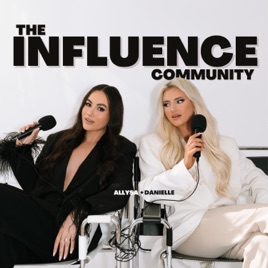
4.4
64
132
The Influence Community
Danielle Glanz & Allysa Larson
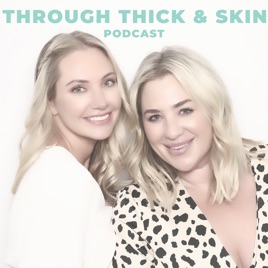
4.9
294
102
Through Thick And Skin: The Podcast
Erin Jensen, Aesthetic PA-C and Megan Pattison Experience Expert

4.8
88
95
The Stitchdown Shoecast
Stitchdown
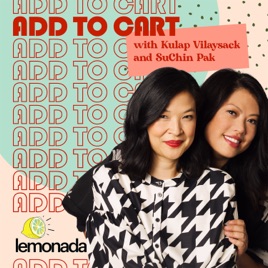
4.3
1081
242
Add to Cart with Kulap Vilaysack & SuChin Pak
Lemonada Media
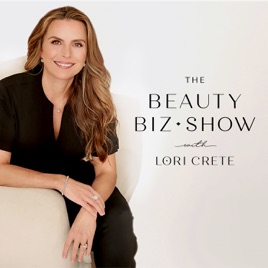
4.8
272
197
The Beauty Biz™ Show
Lori Crete

3.8
112
180
The Buttonista Show
Two Buttons Deep

4.2
320
152
Claima Stories with Bimma
Claima
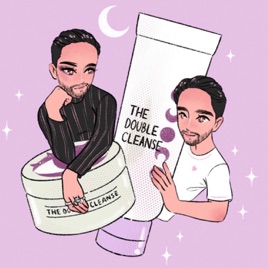
5
1987
101
The Double Cleanse
The Double Cleanse
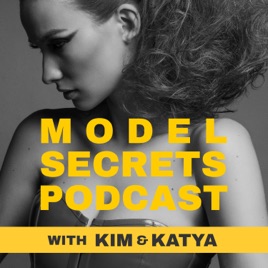
5
17
45
MODEL SECRETS
Kim Alley and Katya Gribanova

4.2
49
3
💐🫶🏻 ★ pretty preppy podcast ★🐬🌴
sophie ~ 🫶🏻




